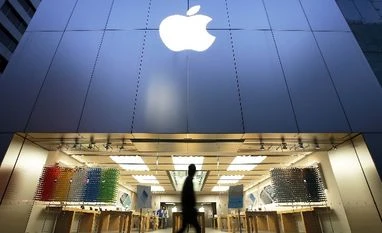Apple wins ruling to force Samsung to change products
Apple won a trial ruling that Samsung infringed its patents for the slide-to-unlock, autocorrect and quick links features
)
Apple Inc won an appeals court ruling that may force Samsung Electronics Co. to stop using some features in its smartphones and tablets.
A US appeals court said Apple was entitled to a narrow order that prevents the Korean device maker from using Apple's slide-to-unlock, autocorrect and quick links features. To rule otherwise would eliminate patent rights of inventors of certain features in multi-component devices, the US Court of Appeals for the Federal Circuit in Washington said in an opinion posted on its electronic docket.
For Apple, it gives the iPhone maker additional firepower when it comes to resolving this four-year-old dispute with its biggest rival. A past Apple settlement with HTC Corp included a "no cloning" provision that ensured HTC's phones didn't look too similar to the iPhone, and the ruling Thursday helps do the same to other mobile phone makers, like China's Xiaomi Corp, that want to enter the US market.
Trial verdict
Apple won a $119.6 million jury verdict in May 2014 from Samsung which was found to have infringed its patents for the slide-to-unlock, autocorrect and quick links features. Even so, the trial judge declined to issue an order forcing Samsung to remove those features from its mobile phones, saying monetary damages would be adequate.
Apple argued that, if it weren't able to control use of its inventions, it may lose market share and its reputation as an innovator.
Samsung backers
Google Inc, HTC Corp, LG Electronics Inc and Rackspace Hosting Inc. were among the companies backing Samsung in its arguments. They argued in a filing with the court that a victory for Apple could allow a patent owner "to unfairly leverage its patent for competitive gain."
The specific features had an impact on customer decisions to buy products, and that should be considered when determining whether to block use of an invention, the court said.
Samsung told the appeals court in March that none of its current models use two of the patents, and only a single product still has the autolink feature, so there's no hardship on it, the court ruled.
A US appeals court said Apple was entitled to a narrow order that prevents the Korean device maker from using Apple's slide-to-unlock, autocorrect and quick links features. To rule otherwise would eliminate patent rights of inventors of certain features in multi-component devices, the US Court of Appeals for the Federal Circuit in Washington said in an opinion posted on its electronic docket.
For Apple, it gives the iPhone maker additional firepower when it comes to resolving this four-year-old dispute with its biggest rival. A past Apple settlement with HTC Corp included a "no cloning" provision that ensured HTC's phones didn't look too similar to the iPhone, and the ruling Thursday helps do the same to other mobile phone makers, like China's Xiaomi Corp, that want to enter the US market.
Also Read
Trial verdict
Apple won a $119.6 million jury verdict in May 2014 from Samsung which was found to have infringed its patents for the slide-to-unlock, autocorrect and quick links features. Even so, the trial judge declined to issue an order forcing Samsung to remove those features from its mobile phones, saying monetary damages would be adequate.
Apple argued that, if it weren't able to control use of its inventions, it may lose market share and its reputation as an innovator.
Samsung backers
Google Inc, HTC Corp, LG Electronics Inc and Rackspace Hosting Inc. were among the companies backing Samsung in its arguments. They argued in a filing with the court that a victory for Apple could allow a patent owner "to unfairly leverage its patent for competitive gain."
The specific features had an impact on customer decisions to buy products, and that should be considered when determining whether to block use of an invention, the court said.
Samsung told the appeals court in March that none of its current models use two of the patents, and only a single product still has the autolink feature, so there's no hardship on it, the court ruled.
More From This Section
Don't miss the most important news and views of the day. Get them on our Telegram channel
First Published: Sep 18 2015 | 12:56 AM IST


